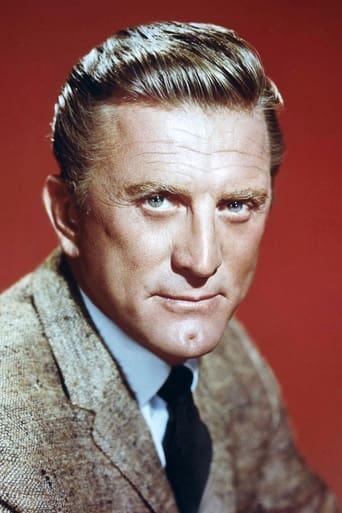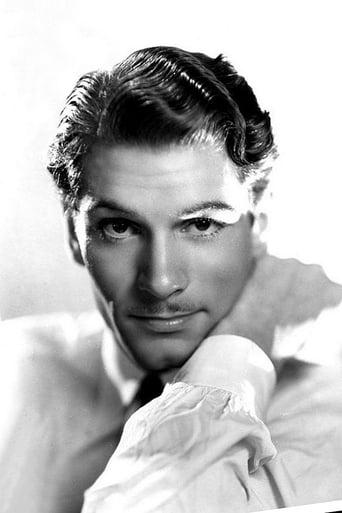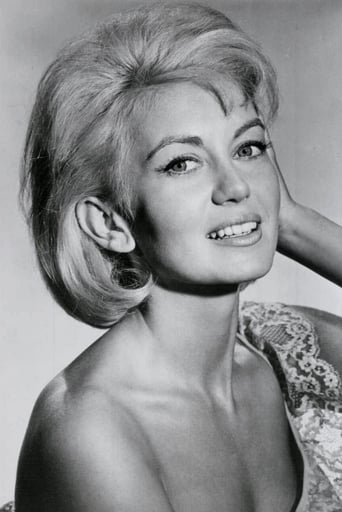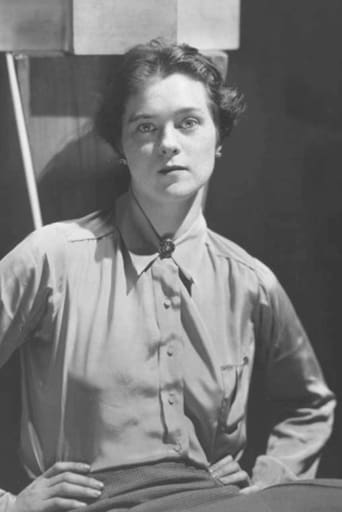Majorthebys
Charming and brutal
StyleSk8r
At first rather annoying in its heavy emphasis on reenactments, this movie ultimately proves fascinating, simply because the complicated, highly dramatic tale it tells still almost defies belief.
Sammy-Jo Cervantes
There are moments that feel comical, some horrific, and some downright inspiring but the tonal shifts hardly matter as the end results come to a film that's perfect for this time.
Blake Rivera
If you like to be scared, if you like to laugh, and if you like to learn a thing or two at the movies, this absolutely cannot be missed.
rick e lapin
This is in answer to otter_c, who wrote: "The only disappointment is Laurence Olivier as General Burgoyne. Olivier castigated himself in his autobiography for botching one of Shaw's most hilarious roles, his personal griefs were overwhelming him at the time. He's nervous and unfocused, line after wonderful line falls flat. (He returned to form shortly after in "Spartacus" and "The Entertainer")"All due respect to both you and Sir Lawrence, but I think this is an instance where his self-appraisal is a little off-target.I've always enjoyed this performance as a very excellent portrait of a thinking man and wit under a great deal of pressure, with no idea that Olivier did not care for it -- thing is, Burgoyne IS distracted; he has more important fish to fry than this petty punitive hanging, and even before he gets the news about Howe he is deeply concerned for the continued viability of his command: He tosses off his bon mots as the after-thoughts of the kind of intellect who could actually write plays when he wasn't under siege in an unpopular war in unfriendly country.And I find that makes them and Burgoyne funnier than, say, Ian Richardson's total self- awareness in the '87 BBC production.Olivier liked to be In Control when he worked; and in some of the roles in which I do not much care for him I feel it makes him artificial and excessively mannered. So naturally, a performance given when he was overwhelmed with grief is gonna rankle the perfectionist in him; but since he was preoccupied with other, more important (to him) matters it put him willy-nilly square in the same frame of mind as I gauge Gentlemanly Johnny to have been in as disaster loomed, I feel it really helps make the performance live in a way the studied Olivier technique might not have come within yards of.The two men -- the actor and the general he portrays -- are up against it, but instinct pulls each through even if more distractedly than if under less severe constraints; there is still enough of the essence of each to make a credible showing.The artist is not always the best critic of his own work; and Olivier's General Burgoyne is excellent work whether the actor knew what he was doing or not.
jshaffer-1
I believe, in spite of the way the credits read, that this is from a play by George Bernard Shaw. Which means you have to really pay attention, since it is going to be satirical. They certainly didn't skimp on this cast. And the unique (for the time) use of animation sequences lends another facet. The main problem seems to be that this picture is mistaken for an action drama. Gentleman Johnny Burgoyne was a very real character. The other characters are just representative of the attitudes and problems of the era. The fact that they don't speak in addled regional accents is a bonus. I think perhaps this movie would have been much more attractive in color, since I think black and white are really best for film noir. It adds nothing to this movie, in fact, it detracts from it. Think how lovely it would have been with all those redcoats and all those trees. Still, the story can stand alone. It is really a modern story, set in a time of trouble, but it is generally satirical and humorous in tone. If Lancaster had gotten any more self-righteous it would have been nauseating.
Stephen Alfieri
When George Bernard Shaw wrote `The Devil's Disciple', it was not one of his favorite plays. In fact, he seldom allowed for it to be performed, while he was alive. By any standard, it does not stand up as well as some of his other plays (`Pygmalion', `Candida', `Saint Joan', `Major Barbara', `Arms and the Man', etc.). This film is rewarded with a screenplay that while uneven at times, maintains the spirit and flavor of Shaw's writing. It is also the beneficiary of three strong performances by Burt Lancaster, Kirk Douglas, and especially, Laurence Olivier. It is rumored that with most of the Lancaster-Douglas films, that the two men would not decide until just before production started, which role they were going to play. In this film, it wouldn't matter. Built on a premise of role reversal, the actors and their roles are interchangeable. In fact, I think it would have been interesting if the movie were filmed twice. Once with the actors in their current roles, and another version with them swapping identities.Both give marvelous performances. Kirk Douglas starts out a little too broad, but you are instantly drawn to him as a man/patriot. His trial scene with Olivier is the highlight of the film. With Lancaster, you can see the foundation work being prepared for his role of `Elmer Gantry'. His fight scene with the soldiers has just the right amount of humor and slapstick. And is anyone as striking as he is when he first enters in his buckskins?But it is Olivier who steals this film. I have read how he did not really enjoy working for Lancaster and Douglas, and so he more or less threw his lines away without much conviction. If that is true, it worked for this picture. He has by far the best lines, best characterization, and straight-men to play off of (especially Harry Andrews). Nice work is also turned in by George Rose.`The Devil's Disciple' is by no means a classic. But it is a must see for film buffs, who want to see three terrific performances, and a pair of friends who obviously had a great chemistry between them, as well as a lot of fun working together.7 out of 10
Poseidon-3
Lancaster and Douglas had a rare and unique Hollywood relationship. Though they could easily have been rivals (and in some ways were), they formed a sort of onscreen "buddy team", working together many times and using their own traits of one-upmanship to lift various projects to a high level of achievement. Their competitiveness, paired with their mutual respect, led to some memorable movies. This is a lesser-known effort of theirs, but is, by no means, an inferior one. Lancaster is a gentle Revolutionary War-era minister, married to the lovely, but puritanical Scott. When the war reaches a fever pitch and local townsfolk begin to hang from the gallows, a roguish prodigal son (Douglas) returns to stir things up. Douglas and Lancaster form an uneasy alliance with each other until Douglas is arrested, mistaken for Lancaster who has buried a "rebel" without permission. The commanding British officer is Olivier, who knows that the war is hopeless, but continues to play it out with a sort of bemused detachment. Though the film contains a fair amount of action, it is really a witty, clever parade of words and thoughts (based on a George Bernard Shaw play) shedding a humorous and ironic light on a page in U.S. history. Lancaster is mellow for much of the film, but effective (and tan! The audience gets to see his muscular back in the film, though Scott is too demure to look upon it herself!) Douglas starts off VERY big, with distractingly dark and satanically groomed eyebrows. Fortunately, he overcomes this gimmick and turns in a solid performance. Olivier is very good, but doesn't really take the reigns of his role to the highest level (and has limited screen time in any case.) Andrews gives a very nice supporting turn as his exasperated right-hand man. Scott does some of her best work as the straight-laced bride who can't help but find herself drawn to the rough-hewn charms of Douglas, though the very idea tortures her. Her best moment comes when Douglas asks her to kiss him and she exclaims, "I can't!" (yet immediately thrusts herself onto him for a lengthy smooch!) As history, the film is dubious at best (and even recognizes this itself!), but, at a tight 83 minutes, it's a delightful diversion featuring a great combination of actors and stars. It doesn't overstay its welcome and has a light touch throughout. (Oh, and check out the stop-motion figures that show up during the voice-over narration! What a hoot!)





